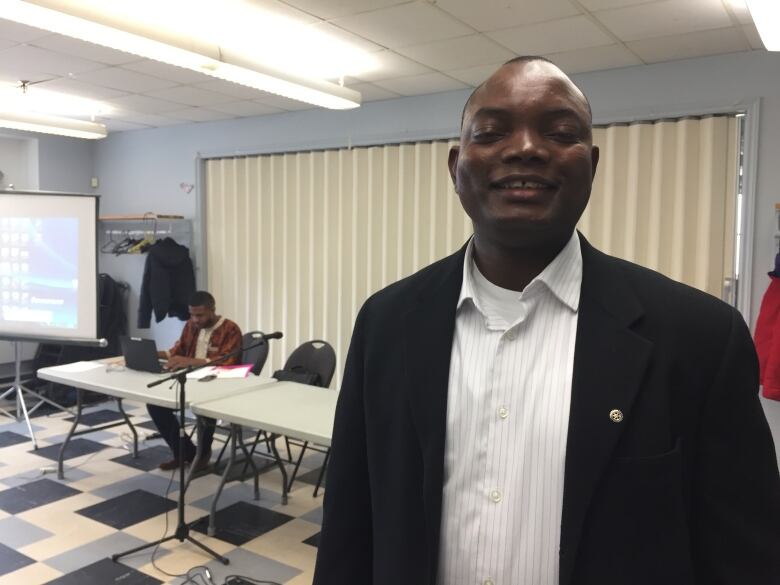Group wants Canada to bring in 20,000 African refugees
African Diaspora Association of the Maritimes wants commitment similar to Syrian refugee efforts

A Halifax-based group wants the federal government to begin working to bring 20,000 African refugees to Canada, applying the same settlement efforts it used to assist Syrian refugees last year.
TheAfrican Diaspora Association of the Maritimessays it contacted AhmedD.Hussen, federal minister of Immigration, Refugees and Citizenshipon Friday as well asNova ScotiaImmigration Minister Lena Diab.
"These people are displaced by war. I would say 90 per cent of refugees in these refugee camps are there because of war," said Godfred Chongatera, immigration lawyer and chair of the African Diaspora Association of the Maritimes.
"There should be a deliberate effort on the part of the federal government to focus some attention on African refugees."

According to the United Nations High Commissioner for Refugees, sub-Saharan Africa hosts more than 26 per cent of the world's refugee population.
The world's biggest refugee camp is Dadaab, located in Kenya. As of March, there were 249,144 refugees living there.
In Ethiopia,there were209,158 people at the refugee campDolloAdo.
Focus on Africa
Chongaterasays African refugee camps existed well beforethe Syrian conflict broke out. He said some people have been in the camps for 20 years, with children being born and growing up there.
Another reason to accept more African refugees now, Chongatera said, is because of the risks African asylum seekers are makingto get acrossthe Canadian border from the U.S.
"If the government takes the lead, it will help," he said.
"We are not in any way against Syrian refugees or government bringing Syrian refugees. We support it and we think the government should continue to do that but we think there is a real problem in Africa."
With files from CBC Radio's Mainstreet












_(720p).jpg)


 OFFICIAL HD MUSIC VIDEO.jpg)
.jpg)



























































































